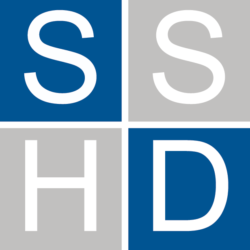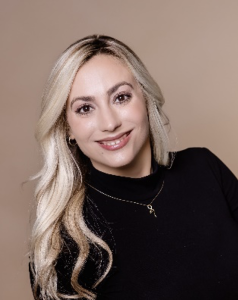 Taking a closer look at research and experiences of SSHD members
Taking a closer look at research and experiences of SSHD members
~Researcher’s Window~
This month, we are getting better acquainted with the research of Dr. Ashley Shafer, a Postdoctoral Associate at the University of Pittsburgh’s Office of Child Development and an emerging scholar committee member of SSHD.
- What drew you to do work in human development?
My passion for human development stems from a deep commitment to understanding how early experiences shape lifelong outcomes. My work in early childhood education, particularly in under-resourced communities, has reinforced the importance of equitable access to high-quality programs. Seeing the impact of supportive relationships, culturally responsive practices, and community-driven approaches solidified my desire to contribute to the field.
- Did you have any mentor or a researcher who had a substantial influence on your path or work?
I have been fortunate to have incredible mentors who have profoundly shaped my academic and professional journey. Dr. Shannon Wanless was the first to introduce me to research, welcoming me into her lab when I was an undergraduate student with a curiosity about educational psychology but no formal research experience. She treated me not just as a student, but as an emerging scholar, challenging me to think critically and engage deeply in both theory and practice. Under her mentorship, I learned how to bridge research and real-world application, particularly through community-engaged work that centers relationships and equity. Because of her, I have pursued opportunities to lead research projects, present at national conferences, and take on leadership roles that contribute to the broader field.
Dr. Josefina Bañales has also had a significant impact on my work, particularly in how I think about research as a tool for social change. Her commitment to community-engaged scholarship and her work with youth critical racial consciousness development have influenced how I approach issues of equity, inclusion, and empowerment in early childhood education. As a mentor, she leads with authenticity, care, and an unwavering commitment to amplifying the voices of those who are often overlooked in research. Seeing how she co-creates knowledge with youth, families, and communities has reinforced my belief in participatory approaches to research and program development.
- You have a range of important work, select 1-2 findings that you feel are key contributions to human development and describe those in brief.
One key contribution of my work is the advancement of equity in early childhood education by exploring how relationship-based professional development can serve as a mechanism for justice. Early childhood professionals, especially those working in under-resourced communities, often navigate systemic barriers that impact their well-being and effectiveness. My research highlights how mentorship, reflective supervision, and professional learning communities can act as protective factors, equipping educators with the support they need to sustain their work and foster stronger, more equitable learning environments for young children. When educators are valued and supported, they are better able to engage in culturally responsive and developmentally appropriate interactions that honor the identities and experiences of the children and families they serve.
Another significant area of my research challenges traditional, deficit-based approaches to family engagement by centering the strengths, voices, and lived realities of diverse communities. Rather than imposing prescriptive models, my work underscores the importance of co-constructing engagement strategies with families, particularly those from historically marginalized backgrounds. Our findings suggest that when families are seen as equal partners in the learning process, early childhood programs become more inclusive, responsive, and just. Through this lens, my research contributes to dismantling inequitable power structures in education and promoting policies and practices that affirm and uplift all families.
Taken together, my work contributes to human development by emphasizing the critical role of relationships as a foundation for equity and justice in early childhood education. By centering the well-being of the early childhood workforce, many of whom are individuals from historically marginalized communities, my research highlights the systemic changes needed to create sustainable, high-quality early childhood systems. Educators, caregivers, and families are not just participants in these systems but essential partners in shaping them.
Your current projects
I am currently integrating research and evaluation into early childhood programs to strengthen service delivery and advance equity. In my current role at an Early Head Start program, I study how professional learning communities empower home visitors to apply Infant Mental Health principles in ways that honor families’ diverse experiences. Another project explores how embedding reflective supervision practices can serve as a structural intervention to enhance workforce well-being. Early childhood educators and home visitors, who are often women and individuals from systematically marginalized communities, face high levels of stress and burnout due to systemic inequities in pay, resources, and support. By fostering spaces for reflection, emotional processing, and professional growth, this research aims to shift early childhood programs toward more just and sustainable workforce policies– ultimately improving outcomes for both the professionals and the families they serve.
- Your one wish for the study of human development?
I wish for human development research to be a tool for dismantling systemic inequities rather than just documenting them. This requires shifting from a top-down approach to one where communities are co-creators of knowledge, ensuring research is accountable to those it seeks to serve. When research informs and is informed by practice, we can create meaningful, lasting improvements in early childhood education, workforce well-being, and family support systems.
- A mentoring statement or quote you find most meaningful or life-changing
“Beloved community is formed not by the eradication of difference but by its affirmation, by each of us claiming the identities and cultural legacies that shape who we are and how we live in the world.” – bell hooks
About the researcher
 Ashley Shafer, Ph.D., is a Postdoctoral Associate at the University of Pittsburgh’s Office of Child Development. Her work focuses on improving the early childhood experience by creating Early Relational Health informed contexts that support child and family well-being. She specializes in workforce well-being, family engagement, and integrating research into practice to advance equity in early childhood systems. Dr. Shafer’s research emphasizes relationship-based professional development, culturally responsive practices, and program evaluation to ensure that early childhood professionals and families receive the support they need to thrive. Through community-engaged projects, she works to bridge research, policy, and practice to drive systemic change. She received her Ph.D. in Applied Developmental Psychology with a minor in Research Methods from the University of Pittsburgh.
Ashley Shafer, Ph.D., is a Postdoctoral Associate at the University of Pittsburgh’s Office of Child Development. Her work focuses on improving the early childhood experience by creating Early Relational Health informed contexts that support child and family well-being. She specializes in workforce well-being, family engagement, and integrating research into practice to advance equity in early childhood systems. Dr. Shafer’s research emphasizes relationship-based professional development, culturally responsive practices, and program evaluation to ensure that early childhood professionals and families receive the support they need to thrive. Through community-engaged projects, she works to bridge research, policy, and practice to drive systemic change. She received her Ph.D. in Applied Developmental Psychology with a minor in Research Methods from the University of Pittsburgh.
Edited and launched by Yoko Yamamoto, Deborah J. Johnson, and Qingyang Liu
SSHD Publicity & Diversity Science Initiative Committee
Visit our website for more information! https://sshdonline.org/
Like us on Facebook!
Follow us on Instagram!
Follow us on LinkedIn!
